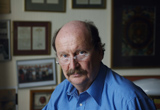 Proponents of integrated medicine want us to believe that they are offering “the best of both worlds” to their patients and claim that using a combination of alternative plus conventional medicine is preferable to conventional medicine alone. This approach allegedly extends our therapeutic options, respects patient choice, and provides compassion in healthcare.
Proponents of integrated medicine want us to believe that they are offering “the best of both worlds” to their patients and claim that using a combination of alternative plus conventional medicine is preferable to conventional medicine alone. This approach allegedly extends our therapeutic options, respects patient choice, and provides compassion in healthcare.
Alternative practitioners, they say, have the ability and time to listen, offer understanding, empathy, sympathy, and compassion. They postulate that these qualities, once called “the art of medicine,” have been lost in modern healthcare which tragically has become de-humanised, technical, heartless, and uncaring. Modern medicine is in a deep crisis, they insist, and integrative medicine offers a way out of the predicament.
This argument is a classic straw-man: it deliberately exaggerates the weaknesses of modern medicine and proposes that its defects can be repaired by adding unproven or disproven treatments to the system—after all, alternative practitioners may well have time, empathy, and compassion, but they also employ treatments that are not evidence-based, implausible, or bogus.
Few people can deny that mainstream medicine is imperfect. All too often, its limitations are nothing but obvious. Therefore, a growing army of experts has been recruited for doing their utmost to improve it. As a result, we have better healthcare today than ever before in the history of medicine.
Compassion has by no means left mainstream medicine and, where it is being neglected, it must be revived not outside but within the system. If modern medicine needs to be reminded of the importance of the art of medicine, this should not be achieved at the expense of the science in medicine. Integrating unproven or disproven treatments into our clinical routine would not improve but can only worsen the situation. The art and the science are not mutually exclusive. In fact, good medicine will always consist of both elements.
The notion that only those who preach the gospel of integrated medicine are able to perform the art of medicine is as ridiculous as it is insulting to everyone in healthcare who does his/her best to meet the needs of their patients. The assumption that unproven or disproven treatments become acceptable simply because they are often administered in a kind and caring fashion is quite simply not true.
The current drive for integrated medicine is illogical and potentially harmful. It should be a concern to anyone with a real interest in improving tomorrow’s healthcare.
Edzard Ernst is a professor of complementary medicine at the Peninsula Medical School, Exeter.